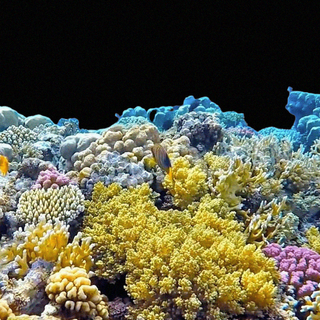It is true that decapitation is fatal — but not for hydras. For these fresh-water invertebrates, beheading is but an inconvenience. Why? Well, they possess the power to grow their heads back. Describing it as a “freaky ability,” Science Alert states: “These invertebrate freshwater animals are also one of the closest examples we have of an immortal being.”
The question is: how?
“…imagine the cell is like a large production factory. The transcription factors [‘proteins involved in the process of converting… DNA into RNA’] are like managers who instruct the workers on their tasks. They can also tell the workers to divert their work and focus on a different process for a little while. The tools they use never change, but they are now working with different instructions about what to make, and they will produce a different product — in this case, it’s a brand-new head,” past research had explained.
But the question, again, is how they do this. Published this week in Genome Biology and Evolution, a new study found that epigenetics — “the study of how your behaviors and environment can cause changes that affect the way your genes work”– could explain the creature’s absurd ability to regenerate its own head.
Turns out, hydras employ sequences of DNA called “enhancers,” which are supposed to genetically regulate the regeneration of cells by driving other developmental processes.
Related on The Swaddle:
A Species of Ants Have the Ability to Shrink, Regrow Their Brains: Study
“[The] scaffolding that DNA coils around for structure… is opened up at these regions to allow the cells to make use of these developmental genes,” Science Alert explains. “Hydra[s] can pretty much resurrect themselves after being torn apart — as long as at least five head-organizing cells remain intact they’ll ooze their way to each other, combine and start organizing the rest of the remaining mess of cells back into a body.”
Interestingly, the mechanisms employed by hydras to regrow their heads have evolutionary origins that may have been passed down to humans too, among other mammals, according to co-author Aide Macias-Muñoz, a biologist at the University of California, Irvine.
Not only that, a study from 2019 had also found an inhibitor protein in hydras that prevent the creatures from growing multiple heads at a given point in time just because they can. This mechanism, too, was found to have been conserved throughout evolution — not just in hydras, but also in humans.
“This prompts some fascinating questions: If some of the same genetic programming that allows hydras to regenerate was passed down to humans, then is the fountain of youth present in the guts of our own cells, just waiting to be tapped?” Eric Mack asked in an article on CNet.
Related on The Swaddle:
People’s Lifespans May Increase In the Future. Why Do They Desire Longer Lives?
If only humans knew how to, right? From Lernean Hydra in Greek mythology, to Raavan in some interpretations of Ramayan — the ability to regrow our heads has fascinated humans for centuries. With people like Tesla’s Elon Musk and Google’s co-founder Sergey Brin driving research in increasing longevity to the point of, perhaps, being immortal, will insights into the ability of hydras to regenerate new heads bring us closer to their goal? Only time can tell.
In the meantime, experts believe a deeper understanding of these “incredible powers” hydras possess may be able to help us devise treatment options for different conditions. The 2019 study, for instance, had pointed out that the inhibitor protein could be useful in the treatment of tumors.
“Studying hydra just gives us a fundamental look at what cells can do and what the mechanisms are at the gene level… If we can figure out how to disrupt them or fix the disruption in other organisms, then maybe we could start to think about how those disruptions that happen and cause disease can be… treated differently,” Macias-Muñoz notes.
It is pertinent to note, however, that she is referring to treatment options for living humans; not non-living ones like Nearly Headless Nick. Although, arguably, possessing the power of hydras could have ensured he wasn’t relegated to the non-living category.




